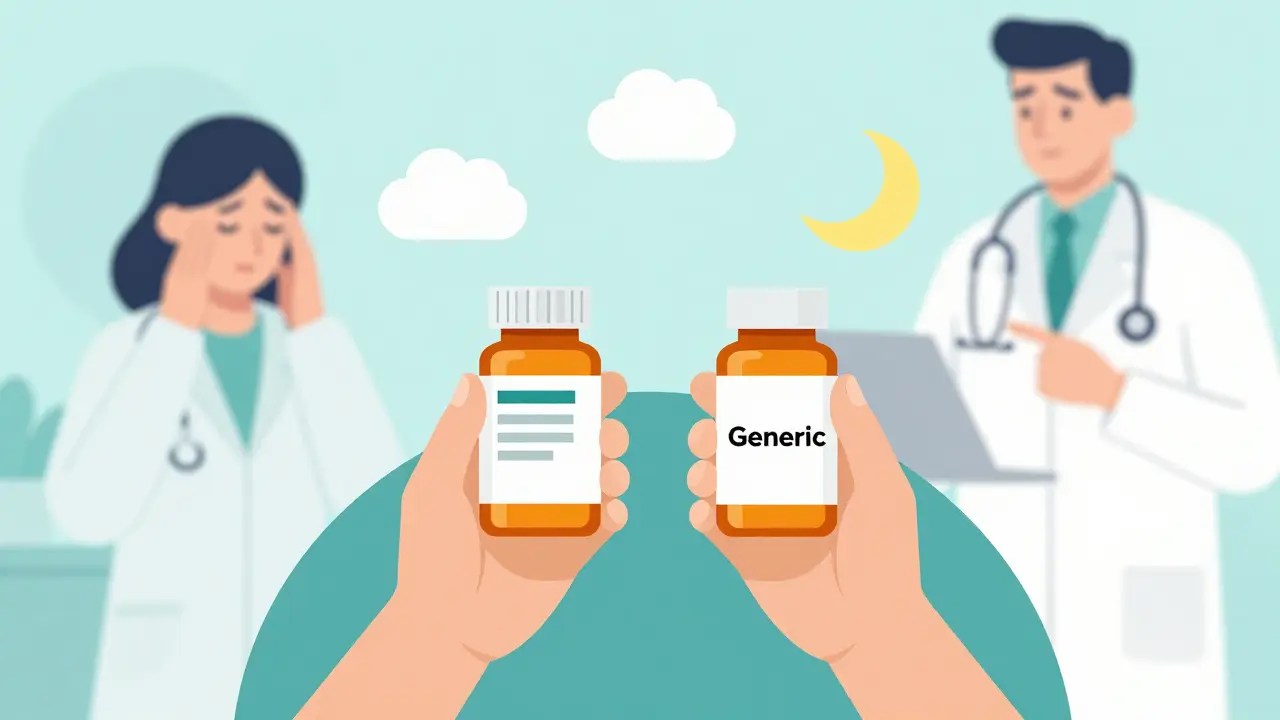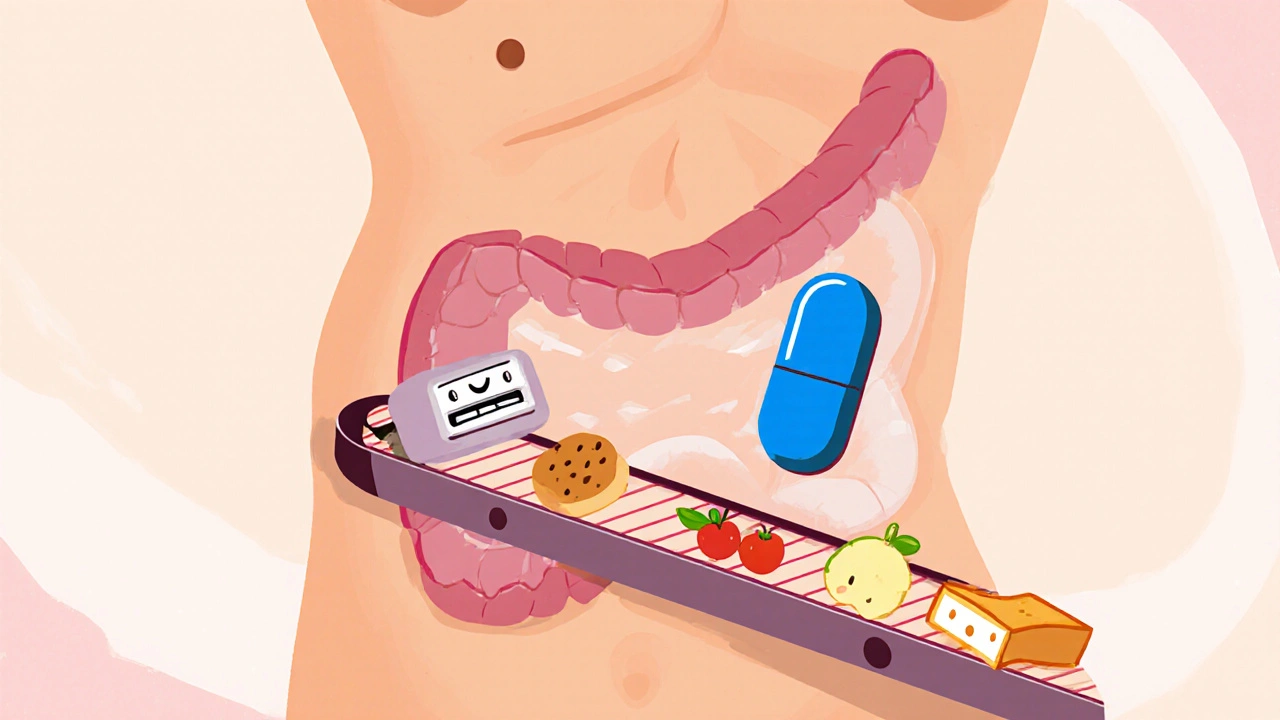Side effects: how to spot them, lower risk, and what to do
Side effects are just the body's response to a medicine. Some are mild and pass in a few days; others can be serious and need quick action. Knowing what to expect and how to respond keeps you safer and less stressed when starting a new drug.
Quick checklist: common signs and drug-specific examples
Watch for these warning signs right away:
- Allergic reactions: rash, itching, swelling of face or throat, trouble breathing — get emergency care if this happens.
- GI issues: nausea, vomiting, diarrhea. Many antibiotics and pain meds do this; take with food if the leaflet says so.
- Unusual tiredness, yellowing skin or dark urine — could signal liver strain; seen with some statins or antibiotics.
- New or worsening muscle pain or weakness — common with some cholesterol drugs like simvastatin.
- Heart symptoms: fast or irregular heartbeat, fainting — certain drugs like Zithromax can rarely affect heart rhythm, especially in people with heart disease.
- Eye changes: blurred vision or eye pain. Steroid eye drops such as loteprednol can raise eye pressure in some people.
- Fever, sore throat or mouth ulcers after starting a medication — with drugs like methimazole this can be a sign of low white blood cells and needs urgent blood tests.
How to reduce risk and respond
Start by reading the leaflet and asking your pharmacist two quick questions: what are the top three side effects I might see, and what should make me call you or go to the ER? Keep a simple record for the first two weeks: dose, time taken, and any new symptoms. That helps your doctor spot patterns.
Simple steps that help: take meds with food when advised, avoid alcohol if the label warns, stay hydrated, and avoid mixing drugs without checking interactions. If a medicine can affect labs or the heart, ask for baseline tests — for example, blood tests for liver or potassium, an ECG if the drug can prolong the QT interval, or regular eye pressure checks for steroid eye drops.
Don’t stop some drugs suddenly. Stopping antidepressants like Zoloft without a plan can cause withdrawal. Call your prescriber to discuss dose changes or safe tapering. If a side effect is mild, your doctor might switch the time of day you take it or change to a similar drug with fewer problems — articles on our site cover alternatives for things like Lasix, Flagyl, and Fexofenadine.
If you get a severe reaction, seek emergency care. For non-urgent but worrying symptoms, contact your pharmacist or prescriber within 24 hours. Report serious adverse events to your local safety authority such as FDA MedWatch in the US — reports help improve safety for everyone.
Knowing common side effects and having a plan turns worry into action. If you’re unsure, bring your medication list to your next appointment and ask for specific things to watch for based on your health and other meds.
Alternative Medication Classes: Different Drugs, Different Side Effects
Different types of medications - prescription, OTC, and herbal - come with unique side effect risks. Learn how to spot dangerous interactions, why generics aren't always interchangeable, and how to stay safe when mixing supplements with prescriptions.
Read MoreSide Effects with Generics: Are Adverse Reactions More Likely?
Are generic drugs more likely to cause side effects than brand-name ones? The science says no-for most people. But for those on critical medications, small differences in fillers, manufacturing, or perception can make a real difference.
Read MoreDomperidone Guide: Uses, Benefits, Side Effects & Dosage
A practical guide to domperidone covering its uses, benefits, dosage, side effects, interactions, and safety tips for patients and caregivers.
Read MoreImodium: Uses, Dosage, Side Effects & Safety Guide
Learn how Imodium works, proper dosing, common side effects, safety tips, and when to seek medical help-all in one easy guide.
Read MoreAcotiamide for Gastroparesis: Evidence, Dosing, Safety, and Practical Use (2025)
Clear, evidence-based guide to acotiamide for gastroparesis: what it is, how it works, who may benefit, dosing, safety, and where it’s available in 2025.
Read MoreAzelastine Drug Interactions: Essential Safety Tips and Facts
Curious about azelastine and its drug interactions? This article breaks down how azelastine works, why drug interactions matter, and what to look out for when using this allergy medication. Learn practical tips for safer use, get answers to common questions, and find out what to do if you experience side effects. Stay informed and manage your allergy symptoms with confidence.
Read MoreOxybutynin and Sexual Health: What to Expect
I recently came across some information on Oxybutynin and its effects on sexual health, and I thought it'd be useful to share my findings. Oxybutynin is a medication primarily used to treat overactive bladder issues, but it can also have some impact on our sexual well-being. Some people may experience side effects such as decreased libido or difficulty achieving orgasm, while others might not notice any significant changes at all. As with any medication, it's important to talk to your healthcare provider about your concerns and discuss potential alternatives if you find your sexual health is being negatively affected. Remember, everyone's experience with medications can be different, so it's crucial to be open with your doctor about your concerns.
Read More






